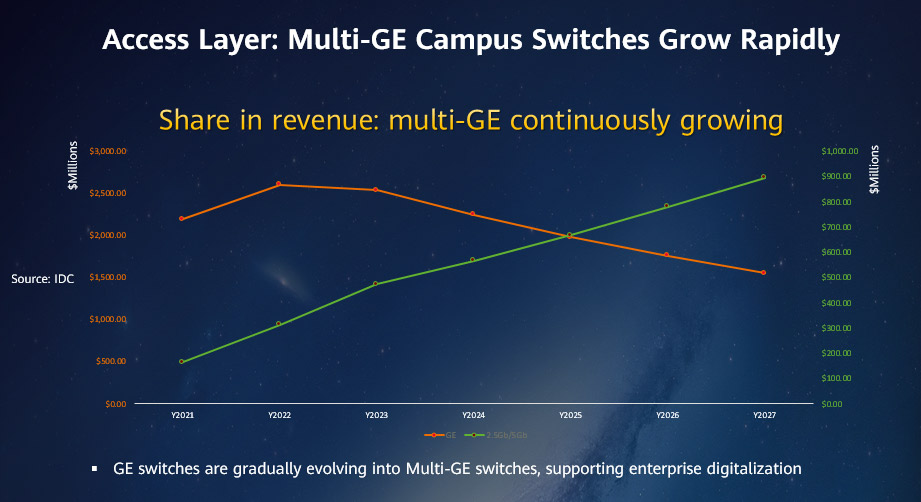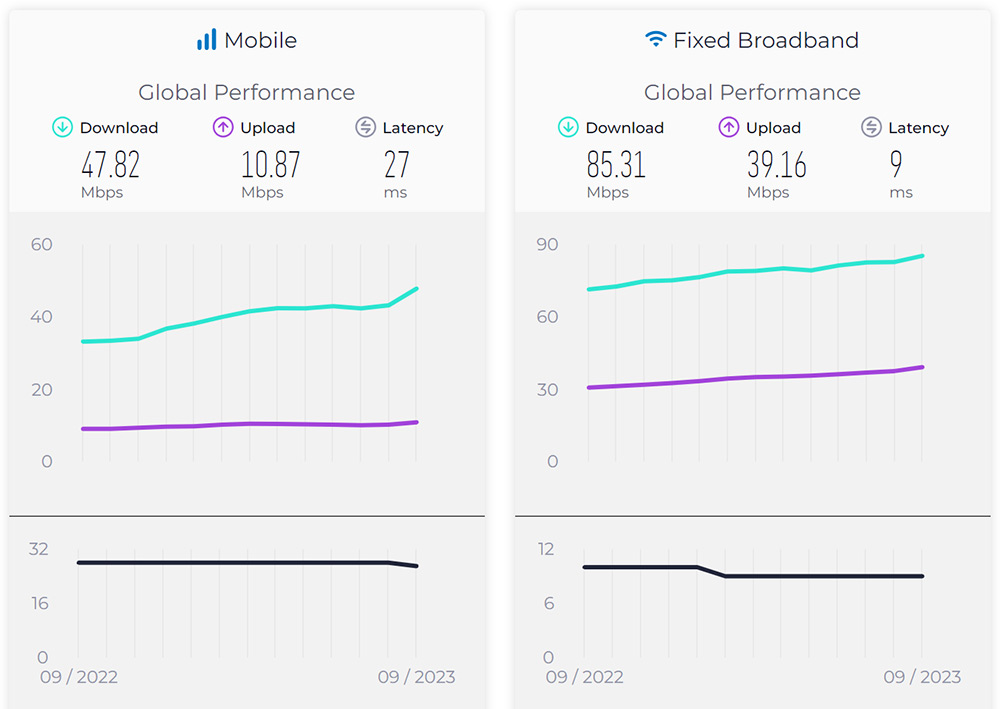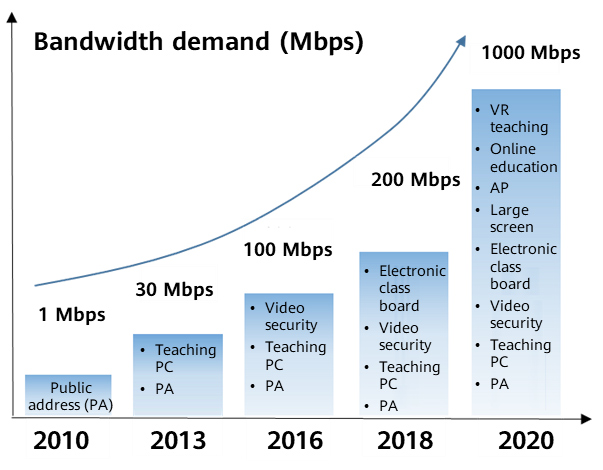Produkte, Lösungen und Services für Unternehmen
Smartphones, PCs & Tablets, Wearables, mobiles Breitband und mehr
Über Huawei, Nachrichten, Veranstaltungen, Brancheneinblicke und mehr
In the last blog, we delved into the basic concepts and reason for emergence of 2.5GE, and concluded that 2.5GE would be a key transition technology and solution for upgrade from GE networks to 10GE networks. What are the current developments in 2.5GE? Is it feasible for today's enterprises to upgrade to 2.5GE? Let's find out answers in this blog.
According to market insights, access networks will gradually transition from GE to 10GE in the next three years. The fact is, the market share of GE switches had already declined since 2022. In contrast, the market share of multi-GE switches is growing rapidly.

In 2023, the global median network speed for terminals grew to as high as 85.31 Mbps, and the bandwidth demand for more than 10 users was likely to exceed gigabit speeds. Due to this, a single device supports fewer users than before, given that 97% of ports on the device are GE ports. Furthermore, the uplink speed of Wi-Fi 6 APs has exceeded 2.5 Gbps, while that of Wi-Fi 7 APs even reaches 10 Gbps.

Taking a single ICT-based classroom as an example, the podium computer and 35 student tablets each require 30 Mbps bandwidth, and two channels of security video each require 20 Mbps bandwidth. All of these bandwidth demands have exceeded gigabit speeds. Coupled with various electronic teaching aids, administrative Internet access, and future-proof VR classrooms, the future classroom bandwidth will exceed 2000 Mbps. In this case, multi-GE switches (2.5GE capable) offer a feasible and sustainable solution.

Today's GE networks at enterprises are difficult to keep up with future changes. However, why do enterprises need 2.5GE or multi-GE ports instead of directly upgrading from GE ports to 10GE ports? This is because enterprises have many concerns when directly upgrading to 10GE or 10GE capable multi-GE ports.
• Impossible to reuse legacy cables: Currently, GE ports use CAT5e cables, while 5GE and higher ports use CAT6 cables. Replacing legacy GE switches with 10GE ones means network-wide re-cabling, which is cumbersome and costly.
• Incompatible with legacy terminals: Most of 10GE-capable multi-GE electrical ports in the industry can be downward compatible to 100 Mbps at most. However, customer networks in education, healthcare, and other industries have many legacy 10 Mbps terminals like scanners, telephone lines, and mini-hosts. 10GE switches cannot adapt to such outdated terminals. Directly upgrading to 10GE means replacing such terminals and changing related services, which is a heavy workload.
• High upgrade costs: Directly replacing legacy GE switches with 10GE ones is costly for many enterprises, let alone the resulting expenses of re-cabling and terminal replacement.
Due to these concerns, upgrade to 10GE is still a relatively long way to go. In this case, 2.5GE or multi-GE is a feasible solution ready at any time for enterprises. More importantly, upgrade to 2.5GE or multi-GE does not change the existing architecture and terminals, and is not as expensive as direct upgrade to 10GE. As such, 2.5GE or multi-GE is a future-proof solution that protects investment.
How can enterprises choose 2.5GE switches? What unique features should 2.5GE switches have in addition to port upgrade? Let's find out in the next blog about the unique benefits of Huawei CloudEngine S5755-H 2.5GE high-quality switches. Stay tuned!
Disclaimer: The views and opinions expressed in this article are those of the author and do not necessarily reflect the official policy, position, products, and technologies of Huawei Technologies Co., Ltd. If you need to learn more about the products and technologies of Huawei Technologies Co., Ltd., please visit our website at e.huawei.com or contact us.